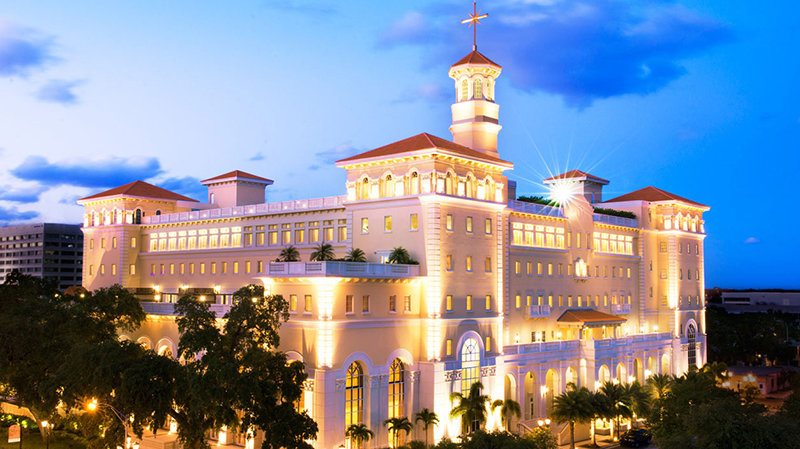Understanding Church of Scientology: Origins, Beliefs, and Practices Revealed
Understanding Church of Scientology: Origins, Beliefs, and Practices Revealed
Blog Article
The Reality Concerning the Church of Scientology Revealed
The Church of Scientology has actually long been a topic of both attraction and dispute, with its beginnings dating back to the mid-20th century. As we begin to unwind the truth regarding the Church of Scientology, a more clear image arises, revealing a story that is as interesting as it is contentious.
Beginnings and Starting
The Church of Scientology was established in 1954 by science fiction author L. Ron Hubbard. Hubbard initially developed a self-help system called Dianetics, which later on evolved right into what is currently referred to as Scientology. The beginnings of Scientology trace back to Hubbard's frustration with standard psychiatric therapy techniques and his idea in the capacity for individuals to conquer previous injuries and accomplish spiritual knowledge.
Hubbard's teachings focused around the principle of thetans, immortal spiritual beings offer in all individuals, and the practice of auditing, a form of counseling intended at revealing and attending to past traumas (Johannesburg North). These principles created the structure of Scientology, which Hubbard referred to as a religious beliefs that provided a path to self-discovery and personal growth
The Church of Scientology rapidly obtained followers, with Hubbard establishing the very first main Church of Scientology in Los Angeles. Over the years, the company expanded around the world, bring in both devoted followers and critics that increased worries concerning its methods and beliefs. Regardless of controversies bordering its methods and origins, Scientology proceeds to be a significant spiritual activity with a visibility in numerous countries all over the world.

Ideas and Practices
With an emphasis on spiritual knowledge and individual development, Scientology's beliefs and techniques revolve around attaining and discovering previous injuries self-discovery via the concept of thetans and the method of auditing. Thetans, according to Scientology teaching, are immortal spiritual beings that exist within each individual. These thetans have endured various past lives and have actually gathered adverse experiences called engrams that prevent spiritual progress. With a procedure called bookkeeping, Scientologists aim to address and remove these engrams to achieve a state of clear, without the negative results of past trauma.
By doing so, Scientologists believe they can attain spiritual knowledge, boost personal growth, and reach their full capacity as spiritual beings. The method of auditing is central to the ideas and methods of Scientology, emphasizing self-discovery and the pursuit of a higher state of existence.
Criticisms and debates
Amidst public analysis and dispute, the Church of Scientology has actually faced a wide variety of controversies and criticisms concerning its practices and influence on society. One considerable point of contention focuses on the organization's supposed economic techniques, with accusations of excessively high charges for solutions and hostile fundraising methods - What is Scientology. Doubters have also raised worries regarding the Church's stringent ordered structure, which some previous members claim promotes a society of control and control
Additionally, the Church of Scientology has been subject to widespread criticism for its therapy of members, including claims of required labor, mental misuse, and the technique of disconnection, where participants are encouraged to cut ties with friends and family vital of the Church. These practices have actually resulted in different lawful obstacles and examinations in several nations, casting a darkness over the Church's reputation.
Furthermore, the Church's aggressive lawful methods versus critics and media electrical outlets have actually sparked arguments concerning freedom of expression and the limitations of religious protection. These disputes have dramatically designed public perception of the Church of Scientology and continue to fuel recurring disputes concerning its legitimacy and influence on culture.
Leadership and Structure
Exactly how does the management structure of the Church of Scientology influence its procedures and decision-making procedures? The Church of Scientology is understood for its ordered management version, which is systematized around the authority of its leader, presently David Miscavige.
At the local level, Scientology runs through individual churches and missions, each with its very own set of leaders this hyperlink liable for supervising operations within their corresponding areas. These leaders are charged with applying the instructions stated by the main management while also attending to the particular demands of their members.
While this hierarchical structure can improve operations and make certain adherence to the church's teachings, it has likewise run the gauntlet for prospective misuses of power and lack of transparency. Recognizing the management and framework of the Church of Scientology is critical in comprehending how the company functions and the dynamics at play within its ranks.
Impact and Impact
What significant impacts does the management structure of the Church of Scientology carry its participants and exterior stakeholders? The hierarchical leadership framework within the Church of Scientology exerts an extensive influence on its members and external stakeholders. Participants are commonly based on stringent control and tracking, with substantial stress to comply with the beliefs and techniques dictated by the leadership. This can cause a loss of personal autonomy and crucial reasoning skills, as people are expected to unquestioningly follow the regulations stated by the company's leaders (Scientology).
On The Surface, the Church of Scientology's management framework can have a polarizing impact on stakeholders. Overall, the management framework of the Church of Scientology plays a significant role in forming the experiences and perceptions of both members and exterior stakeholders.
Final Thought

The Church of Scientology swiftly acquired followers, with Hubbard establishing the very first main Church of Scientology in Los Angeles.In the middle of public analysis and debate, the Church of Scientology has actually encountered a wide variety of disputes and criticisms concerning its techniques see and influence on society.What considerable impacts does the leadership structure of the Church of Scientology have on its members and external stakeholders? The hierarchical management structure within the Church of Scientology applies a profound influence on its participants and outside stakeholders. Generally, the leadership framework of the Church of Scientology plays a considerable function in shaping the experiences and perceptions of both members and external stakeholders.
Report this page